Search Our Whole site:
Just Search: India
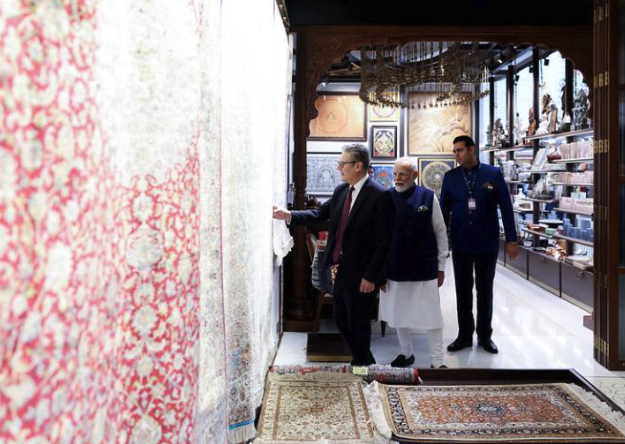
UCL joins UK Prime Minister India visit and unveils new technology collaborations
UCL President & Provost Dr Michael Spence has joined UK Prime Minister Sir Keir Starmer’s first official visit to India this week, advancing UCL’s strategic collaborations across technology and innovation.
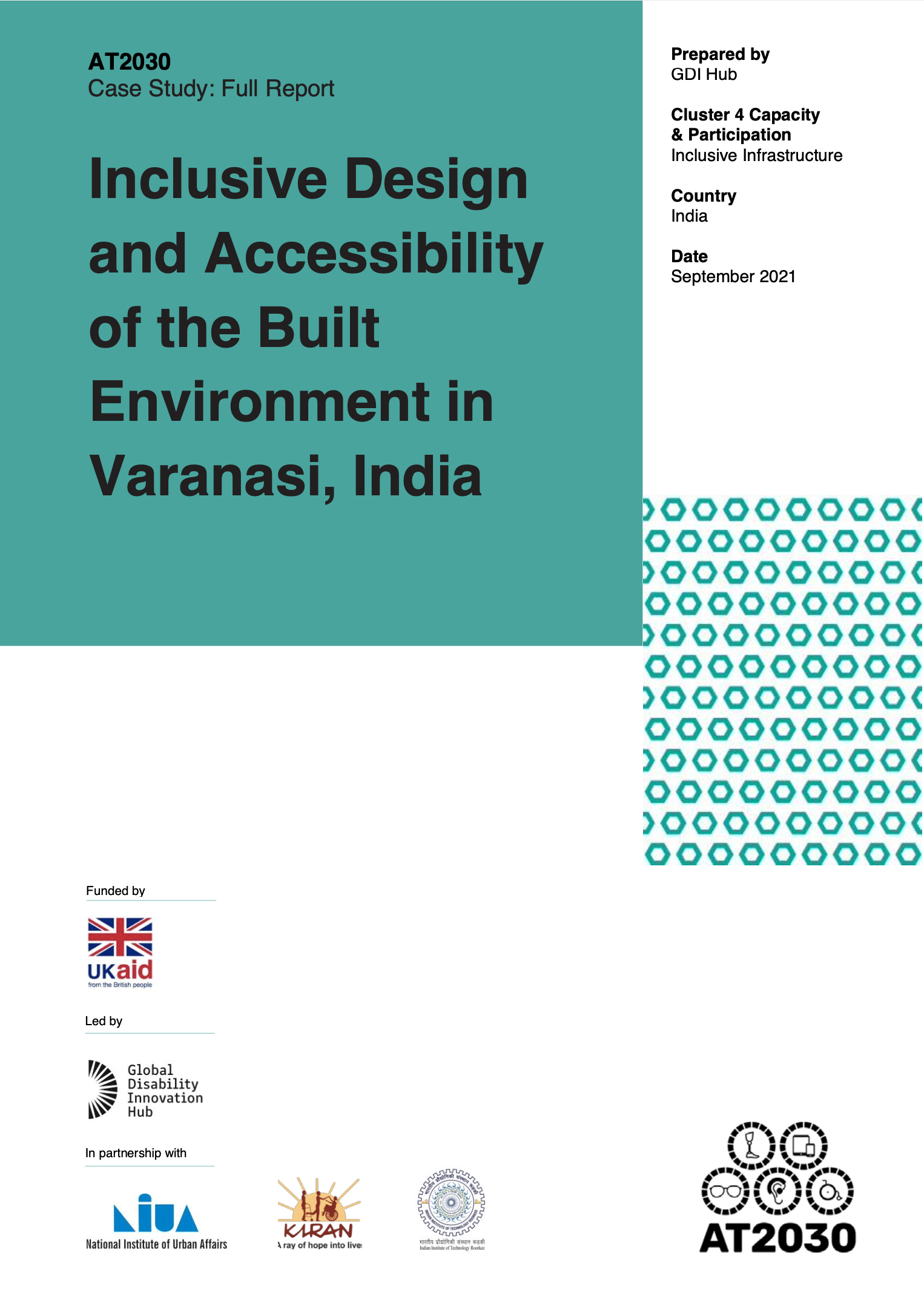
Inclusive Design and Accessibility of the Built Environment in Varanasi, India
The purpose of this case study is to explore the state of inclusive and accessible environments for persons with disabilities in Varanasi, India, through engagement with policy, industry and community stakeholders (policy, practice and people). Through this engagement, the case study is developing evidence on the challenges and opportunities for implementing inclusive and accessible design in Varanasi and makes recommendations on local actions towards becoming a more inclusive city.
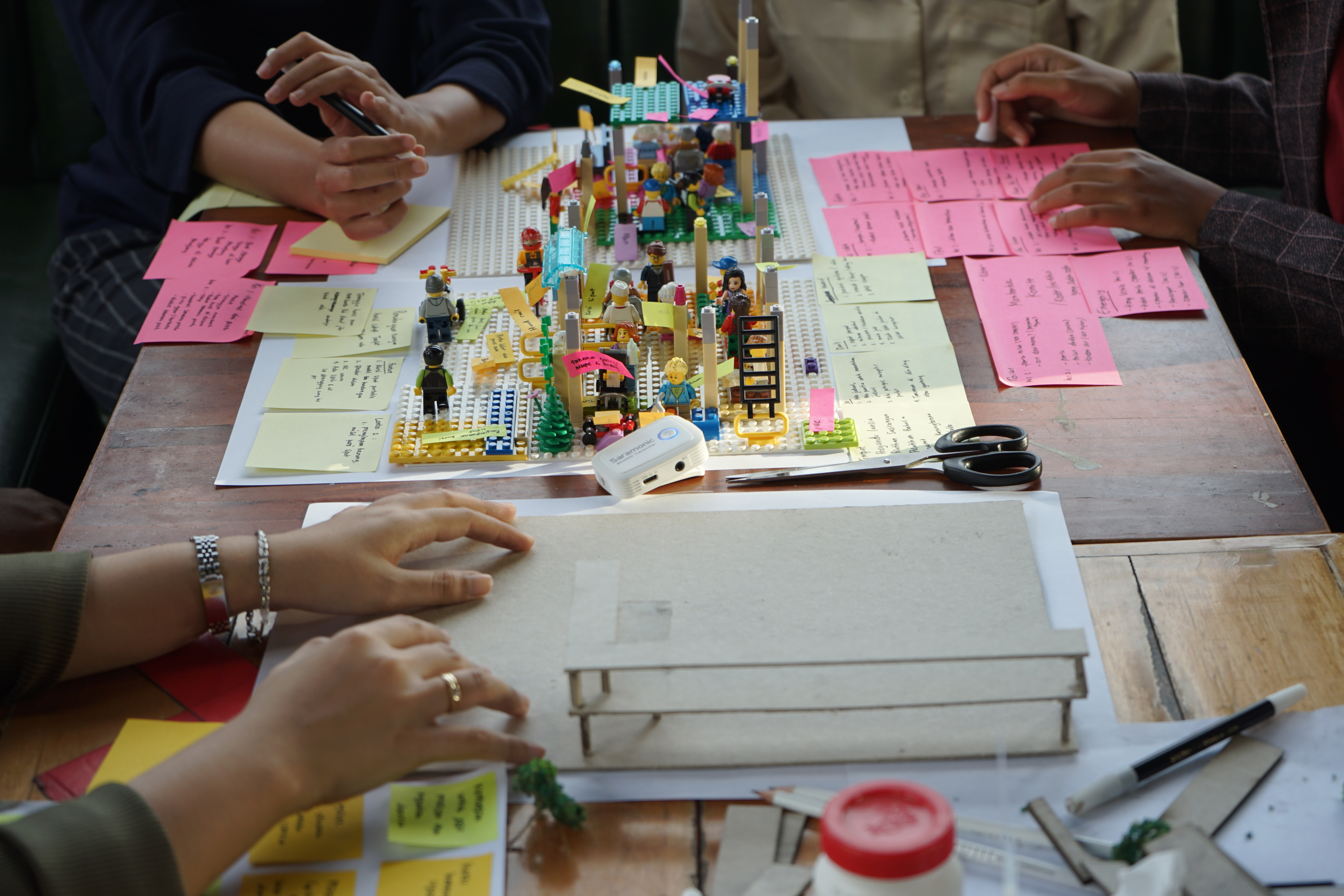
Co-design workshop exploring inclusive and accessible urban environment in Varanasi, India
GDI Hub, NIUA and Kiran Society hold co design workshop to build insights on creating inclusive and accessible urban environment in Varanasi, India. As part of the ongoing research case study, the workshop aimed to understand the state of inclusive design and accessible urban environment in the city of Varanasi.
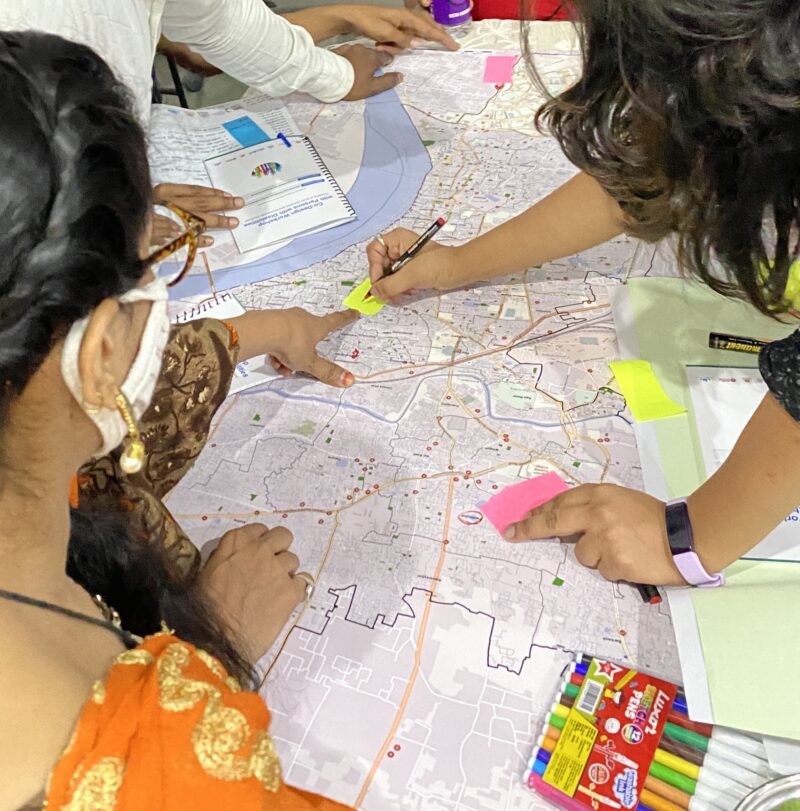
Co-design workshop exploring inclusive and accessible urban environment in Varanasi, India
GDI Hub, NIUA and Kiran Society hold co design workshop to build insights on creating inclusive and accessible urban environment in Varanasi, India
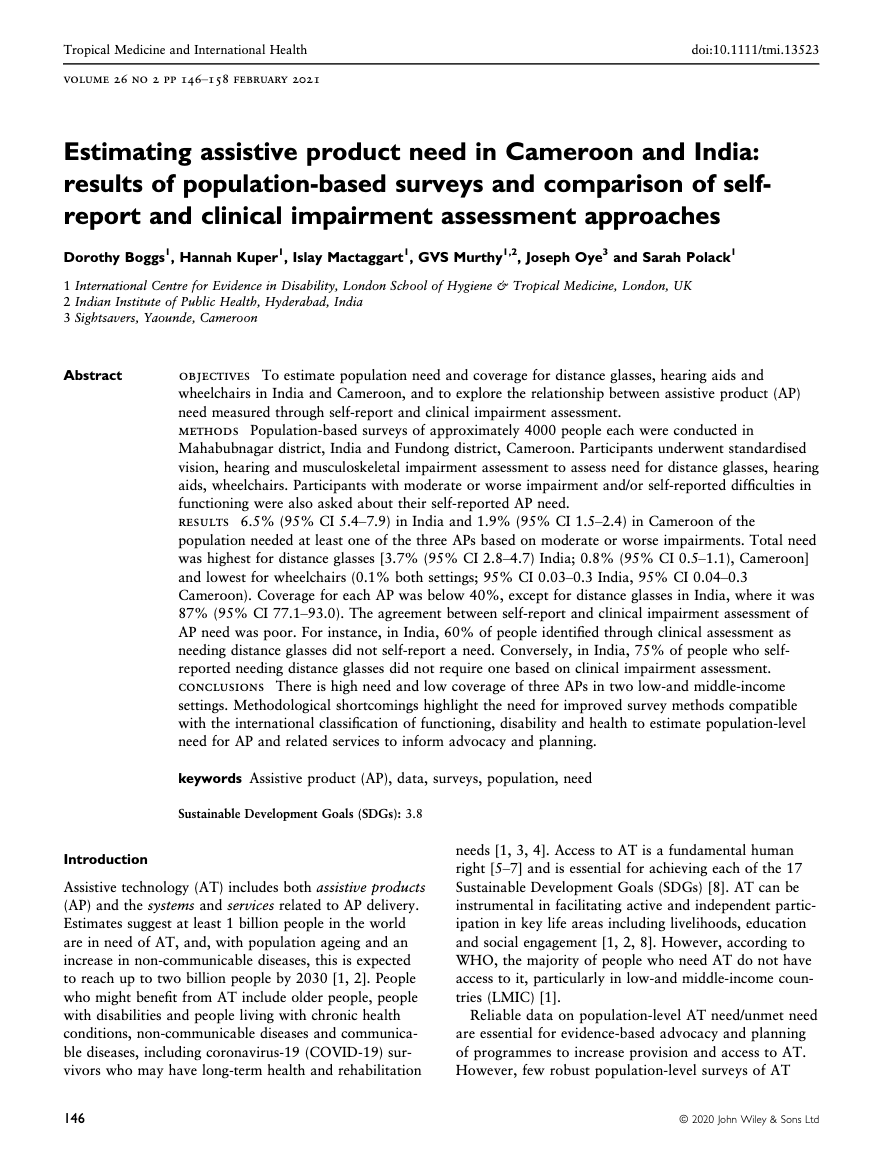
Estimating assistive product need in Cameroon and India: results of population-based surveys and comparison of self-report and clinical impairment assessment approaches.
A paper estimating population need and coverage for assistive devices in India and Cameroon.
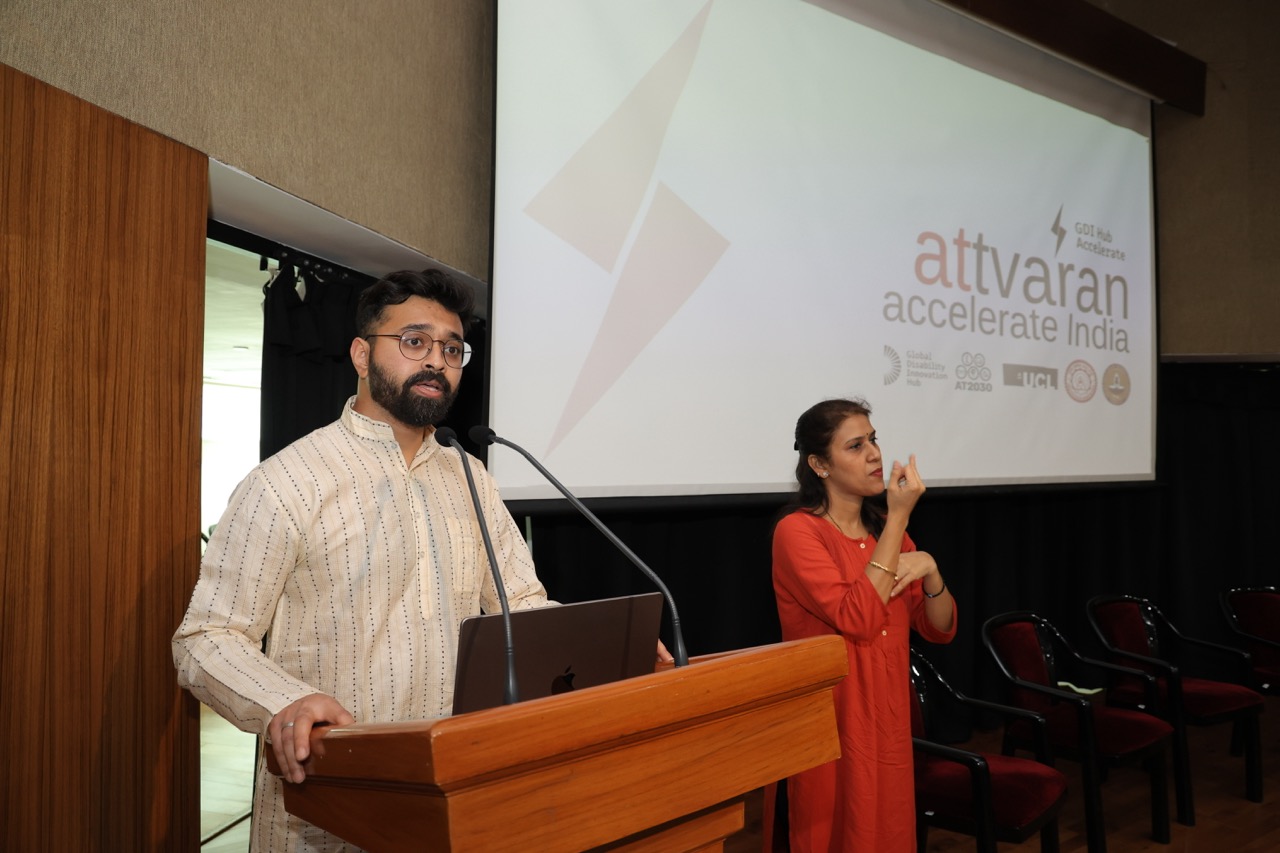
Powering AT solutions - Attvaran India accelerator is launched
Attvaran seeks to accelerate startup growth, supporting early-stage inclusive, disability and technology startups in improving their product-market fit. Through intense mentorship, ecosystem access, education and networking, this Delhi based accelerator will provide a pipeline for emerging regional technologies - and bring together key players in the assistive technology ecosystem.
GDI Hub, NIUA and Kiran Society hold co design workshop to build insights on creating inclusive and accessible urban environment in Varanasi, India
The workshop looked to understand the barriers and challenges faced by disabled people in accessing basic infrastructure services, identifying key priority areas for improvement and recommendations for city stakeholders.
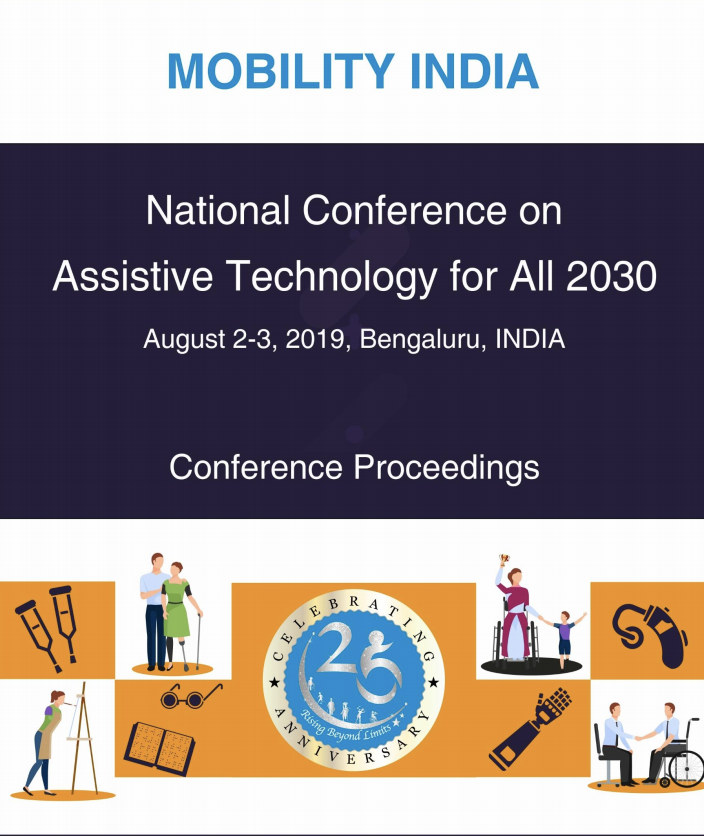
Global Disability Innovation Hub and AT Innovation in India
Cathy Holloway's presentation on the Global Disability Innovation Hub and AT Innovation in India at the National Conference on Assistive Technology in Bengaluru, India.
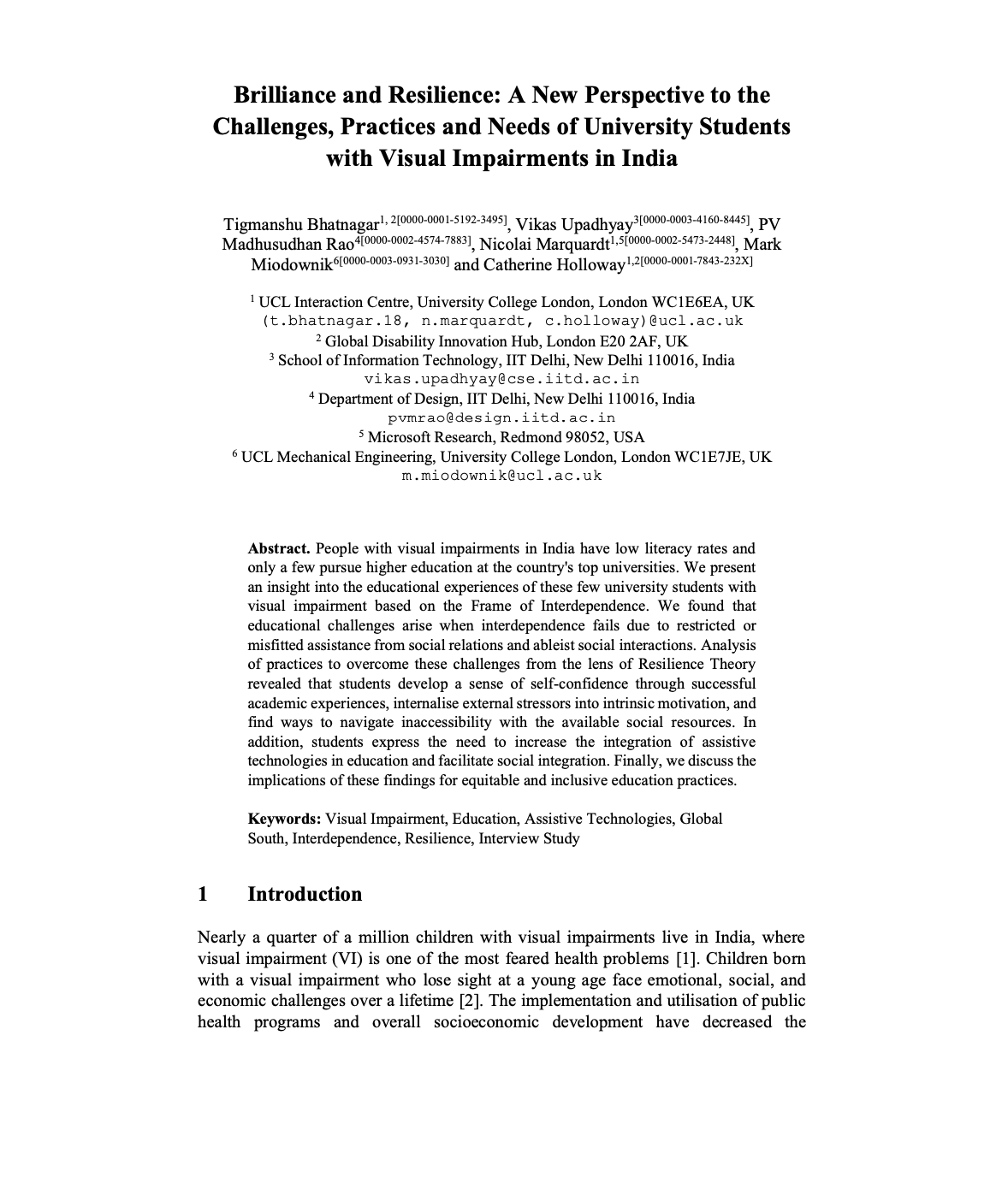
Brilliance and Resilience: A New Perspective to the Challenges, Practices and Needs of University Students with Visual Impairments in India
People with visual impairments in India have low literacy rates and only a few pursue higher education at the country's top universities. We present an insight into the educational experiences of these few university students with visual impairment based on the Frame of Interdependence. We found that educational challenges arise when interdependence fails due to restricted or misfitted assistance from social relations and ableist social interactions. Analysis of practices to overcome these challenges from the lens of Resilience Theory revealed that students develop a sense of self-confidence through successful academic experiences, internalise external stressors into intrinsic motivation, and find ways to navigate inaccessibility with the available social resources. In addition, students express the need to increase the integration of assistive technologies in education and facilitate social integration. Finally, we discuss the implications of these findings for equitable and inclusiv
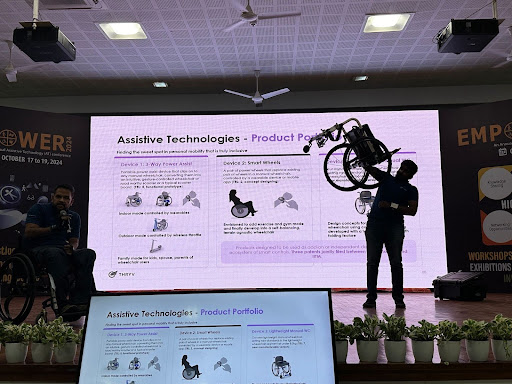
16 Assistive Technology startups receive seed grants worth ₹78.5 Lakhs at the EMPOWER 2024 Pitch Day
India is a startup nation, and assistive technology is a globally growing market. Find out more about the AT2030 Attvaran Accelerator pitch day at the premiere Indian assistive technology conference, EMPOWER 2024 - a landmark move to accelerate innovation and inclusion in the AT sector.
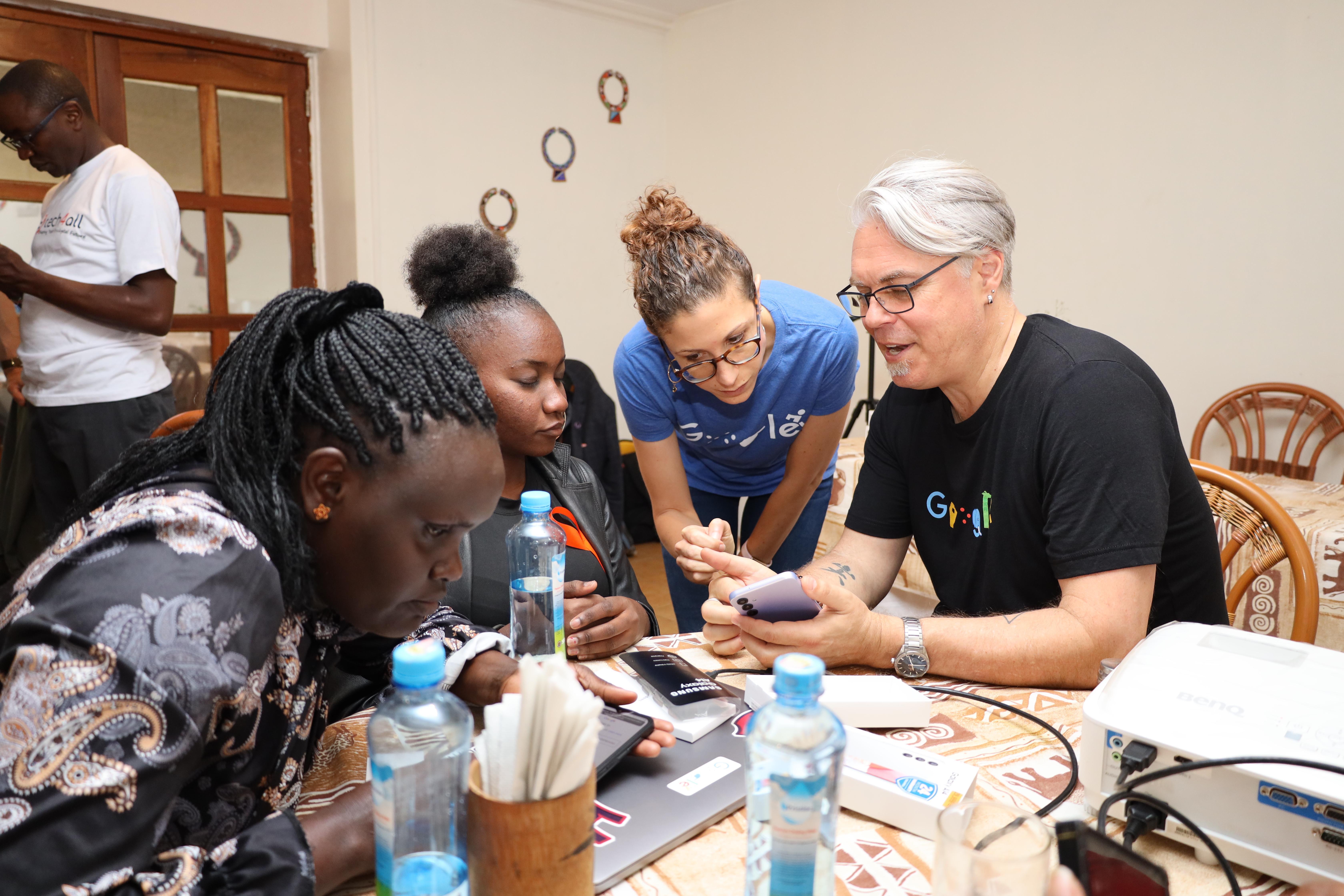
Google project to assist sight and hearing in India, Brazil, and Kenya
Mobile as Assistive Technology: How Digital Assistive Technology is Transforming Lives GDI Hub, Google and AT Scale launch pioneering project to test ‘Mobile at Assistive Tech’ in Kenya, Brazil and India.
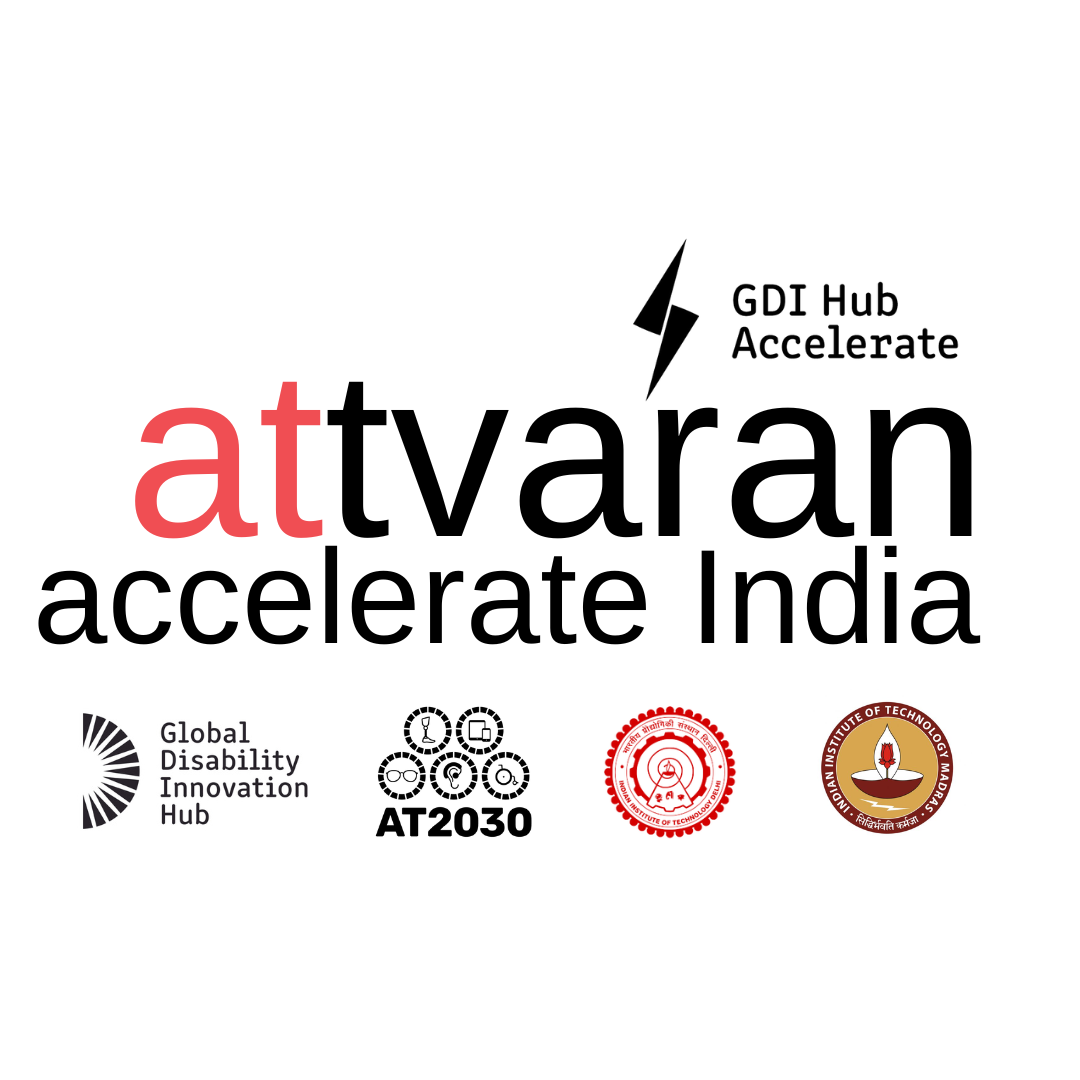
Attvaran accelerator.
In the heart of India's burgeoning tech landscape, the Global Disability Innovation Hub, IIT Delhi and Manush Labs new innovative startup accelerator will be dedicated to early-stage assistive technology ventures and inclusive solutions. Titled Attvaran - the intense three-month accelerator aims to boost early-stage entrepreneurs in transforming solutions into compelling businesses. The programme will include expert talks, time-bound exercises, bespoke mentorship and building a network to a prolific ecosystem of entrepreneurs, disability and tech experts, assistive technology users, customers and investors.
Press Release: VSCL and NIUA hold a City Stakeholder Consultation to facilitate and realise the vision of a Sugamya Kashi (Inclusive Varanasi)
Press Release: Varanasi Smart City Limited (VSCL) and National Institute of Urban Affairs (NIUA) hold a City Stakeholder Consultation to facilitate and realise the vision of a Sugamya Kashi (Inclusive Varanasi)
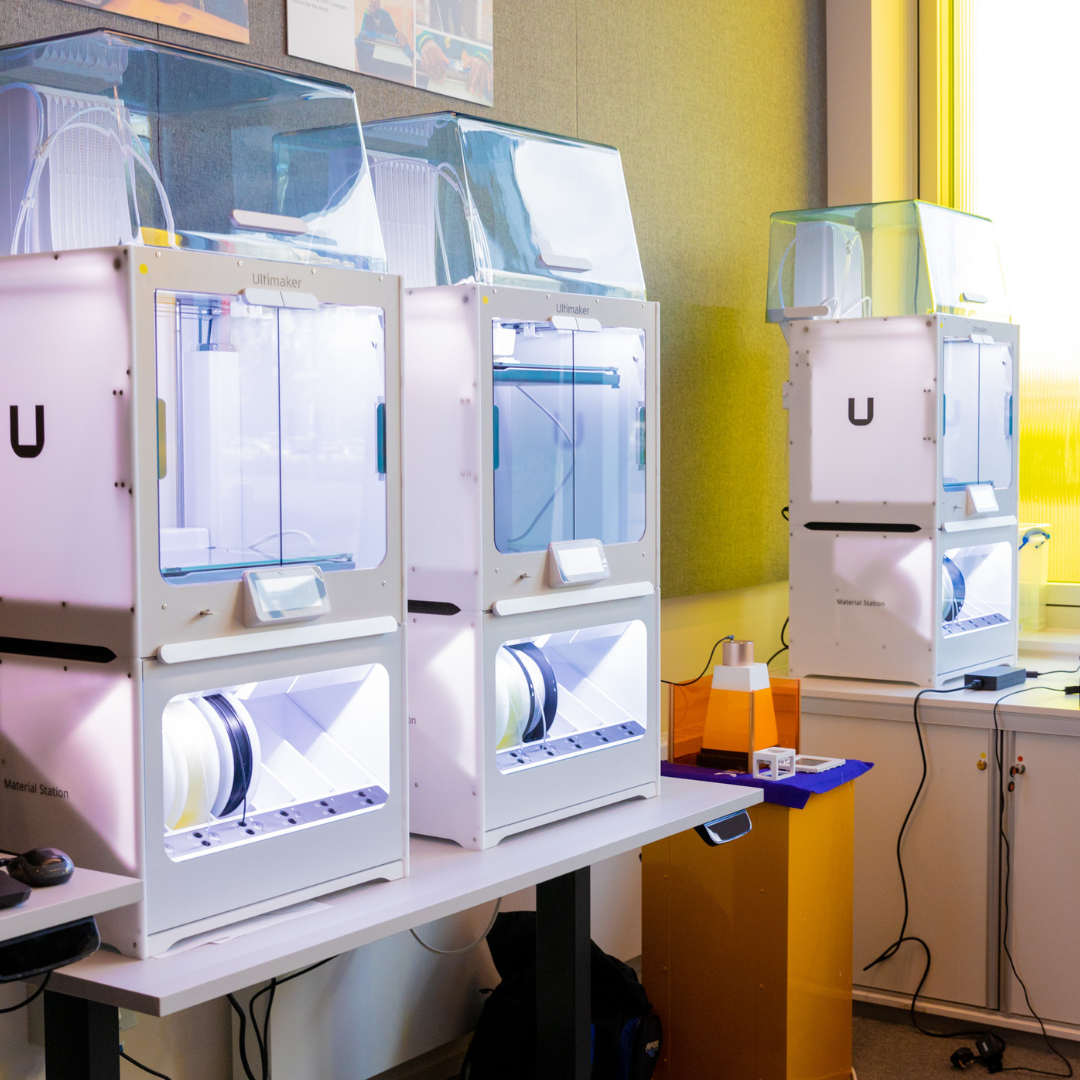
AT2030 launches innovative startup accelerator dedicated to early-stage assistive technology ventures in Asia
The intense three-month program beginning July 2024 will include expert talks, time-bound exercises, bespoke mentorship and building a network to a prolific ecosystem of entrepreneurs, disability and tech experts, assistive technology users, customers and investors. The program aims to boost early-stage entrepreneurs in transforming solutions into compelling businesses.
Join Attvaran's AT Pitch Day at Empower Conference 2024
GDI Hub and NCPEDP will cohost a Demo Day for Assistive Technology Startups at EMPOWER 2024 in Thiruvananthapuram - designed to accelerate the growth of AT solutions, focusing on improving accessibility and inclusion for people with disabilities. We are seeking ventures to apply to join this pitch opportunity, with two parallel pitching sessions —one for grant funding and another for angel and venture capital investment.

UCL and Indian partners to drive disability innovation through assistive technology
The Global Disability Innovation Hub (GDI Hub) at UCL has announced a new collaboration with the Indian Institute of Technology to support disability inclusion. The academic research and practice centre, based at UCL East, signed a new Memorandum of Understanding with colleagues from the Assistech Lab at Indian Institute of Technology Delhi (IIT Delhi) and R2D2 lab at Indian Institute of Technology Madras (IIT Madras). As leaders in assistive technology (AT) research, the organisations plan to jointly deliver a collaborative AT Accelerator Program, an AT Innovation Portal, and an AT Academic Innovation Partnership to drive knowledge across different markets.
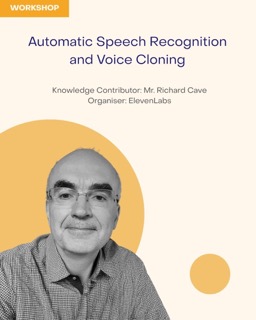
Empower Conference: Automatic Speech Recognition & Voice Cloning
Change or loss of natural voice is likely for many people living with progressive neurological conditions such as MND/ALS, Parkinson’s Disease, MSA, PSP and many others. Also, for people living with the effects of head and neck cancer, trauma. And for many others, they may have never had natural voice to communicate with, for example some people with cerebral palsy. Is this situation, text to speech (or picture to speech) apps are sometimes used, using a synthesised voice that frequently sounds very different to how a person sounded or should be represented.
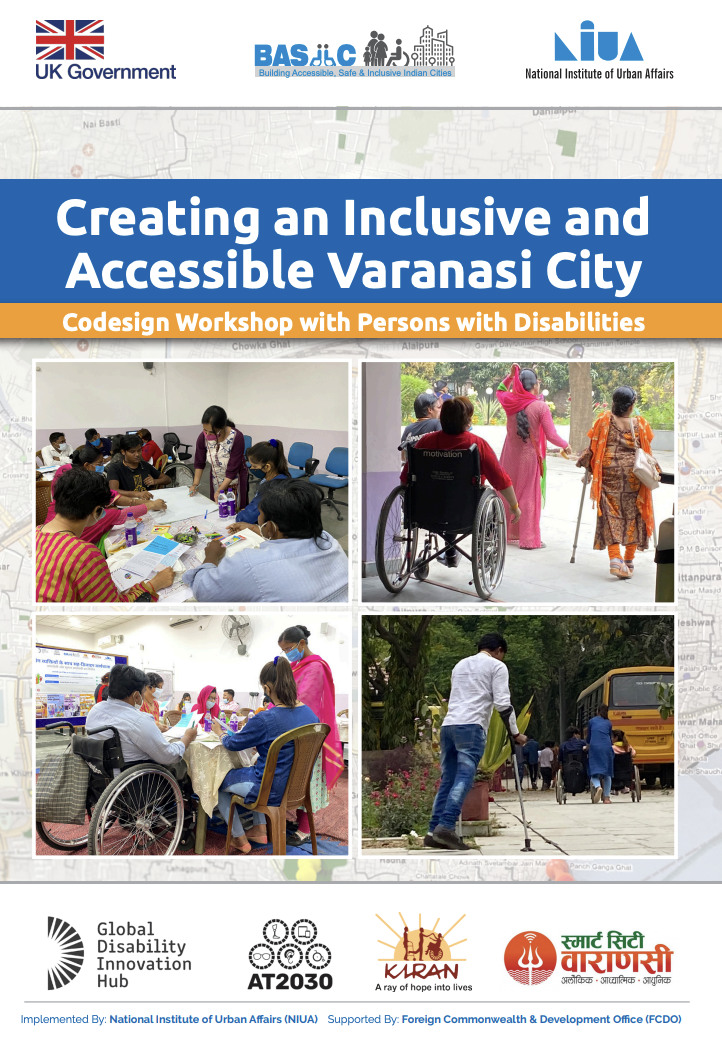
Creating an Inclusive and Accessible Varanasi City
On 12th Mar. 2021, a Co-design Workshop with Persons with Disabilities was conducted in Varanasi. The workshop was jointly organised and facilitated by GDI Hub and NIUA along with the support from Kiran Society (Varanasi based Disabled People’s Organization) and Varanasi Smart City Ltd (city stakeholder). The workshop was titled as “Co-design workshop with persons with disabilities – Creating a more inclusive and accessible Varanasi”.
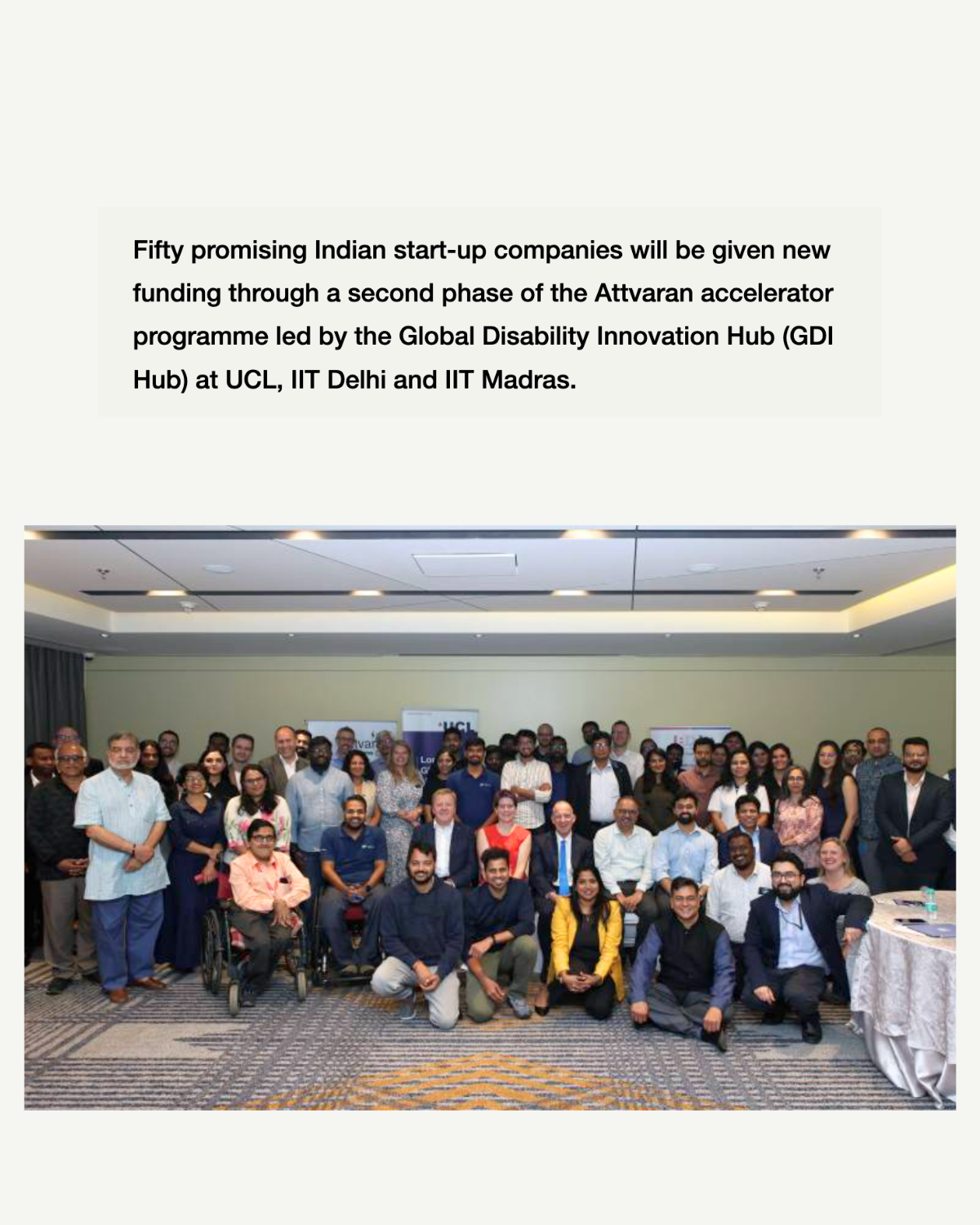
UCL and Indian partners announce new round of funding for 50 disability inclusion startups
Our Delhi based Attvaran Accelerator announced a second phase of this regional innovation accelerator, which will look to support 50 promising Indian start-up companies to scale emerging Assistive Tech The UCL Provost Dr Michael Spence AC joined our Assistive Tech Demo Day ahead of the Bengaluru Tech Summit, Asia's largest tech conclave to announce that the Attvaran Accelerator will continue to forge new interactions, innovation, research and business opportunities that enable pioneering Assistive Technologies to change lives across the region.
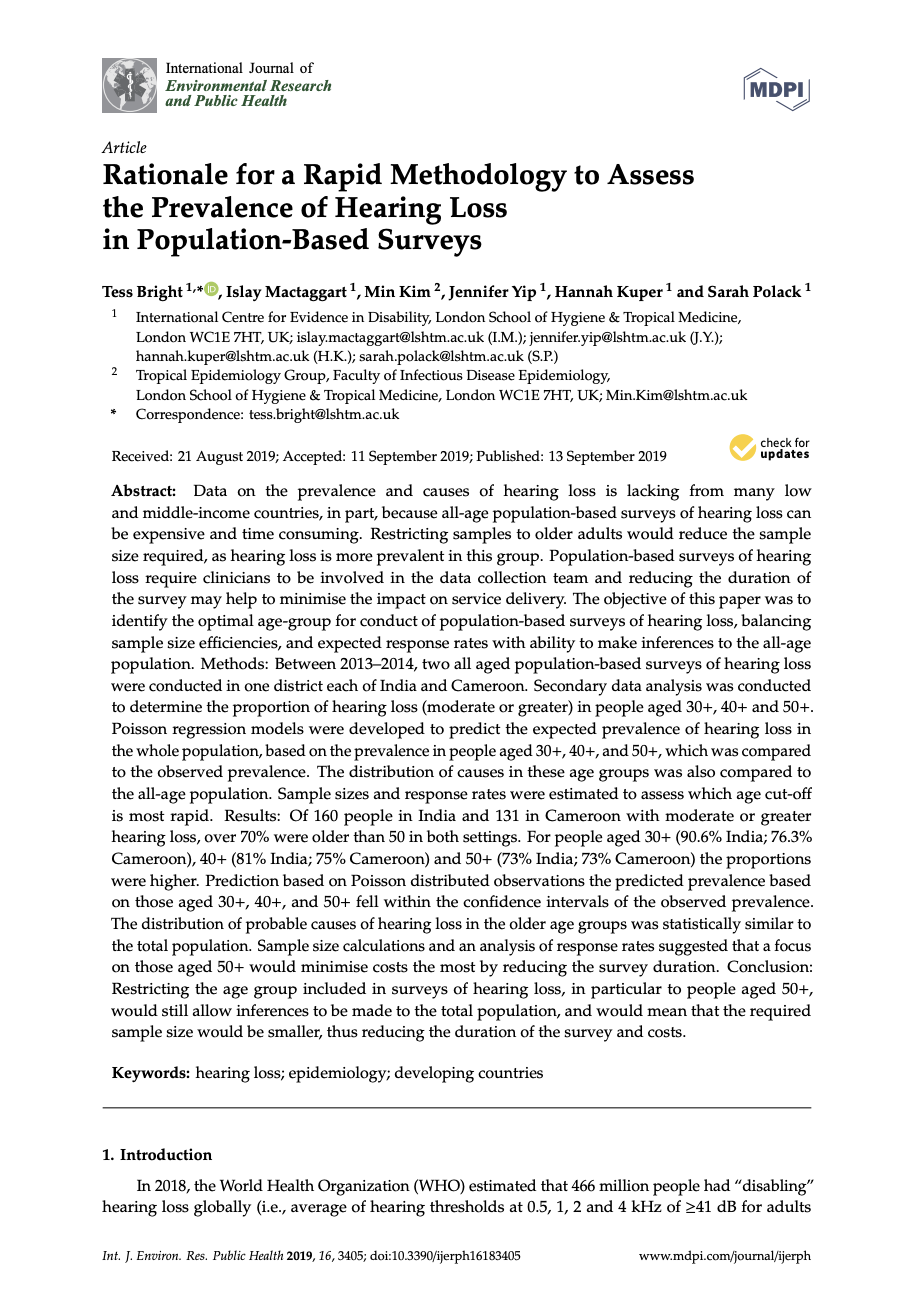
Rationale for a Rapid Methodology to Assess the Prevalence of Hearing Loss in Population-Based Surveys.
Between 2013-2014, two all aged population-based surveys of hearing loss were conducted in one district each of India and Cameroon. Secondary data analysis was conducted to determine the proportion of hearing loss (moderate or greater) in people aged 30+, 40+ and 50+. Poisson regression models were developed to predict the expected prevalence of hearing loss in the whole population, based on the prevalence in people aged 30+, 40+, and 50+, which was compared to the observed prevalence.